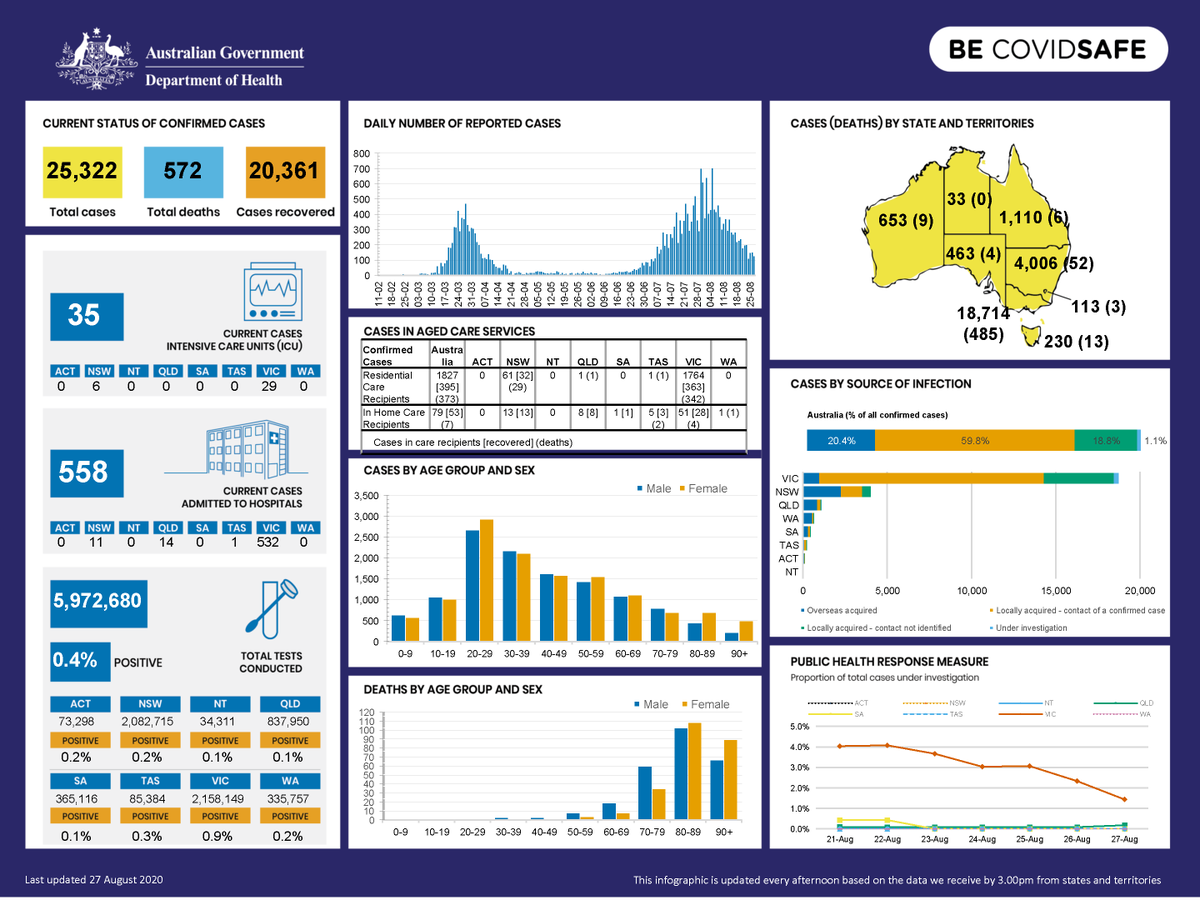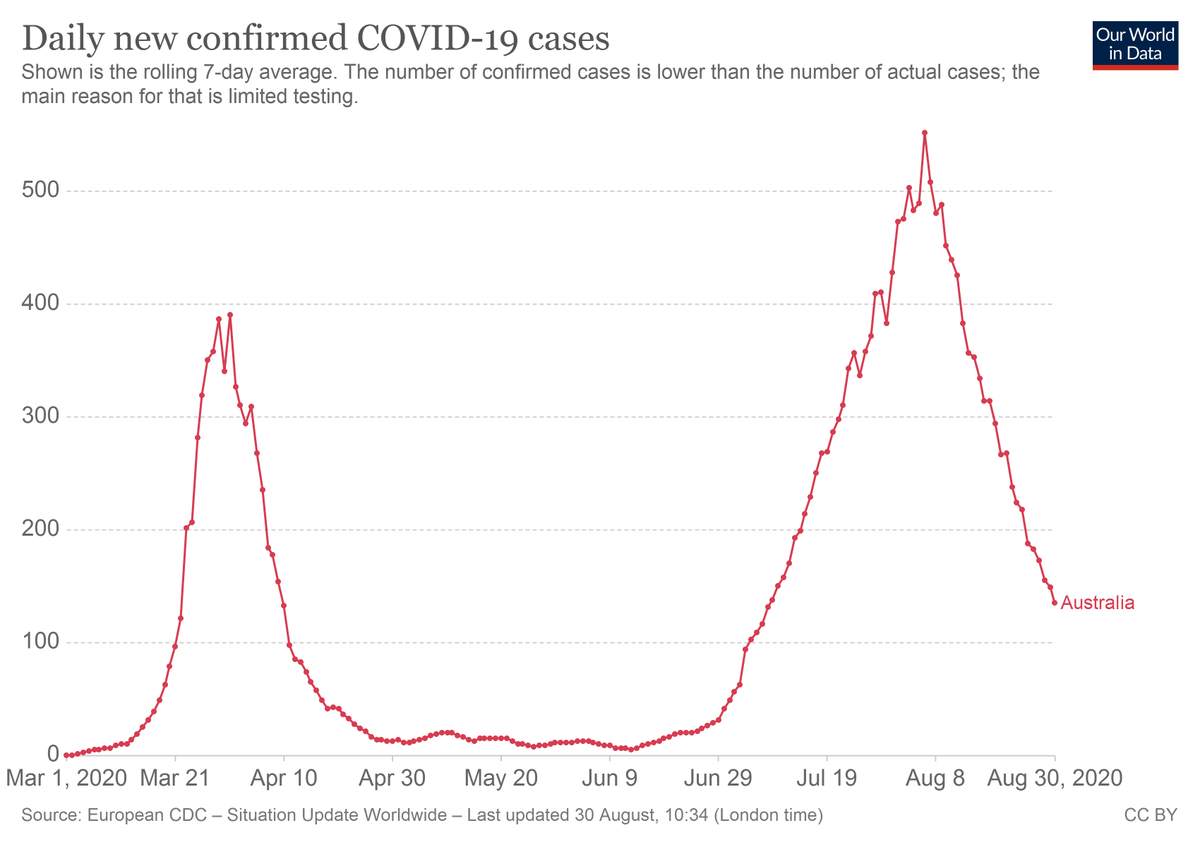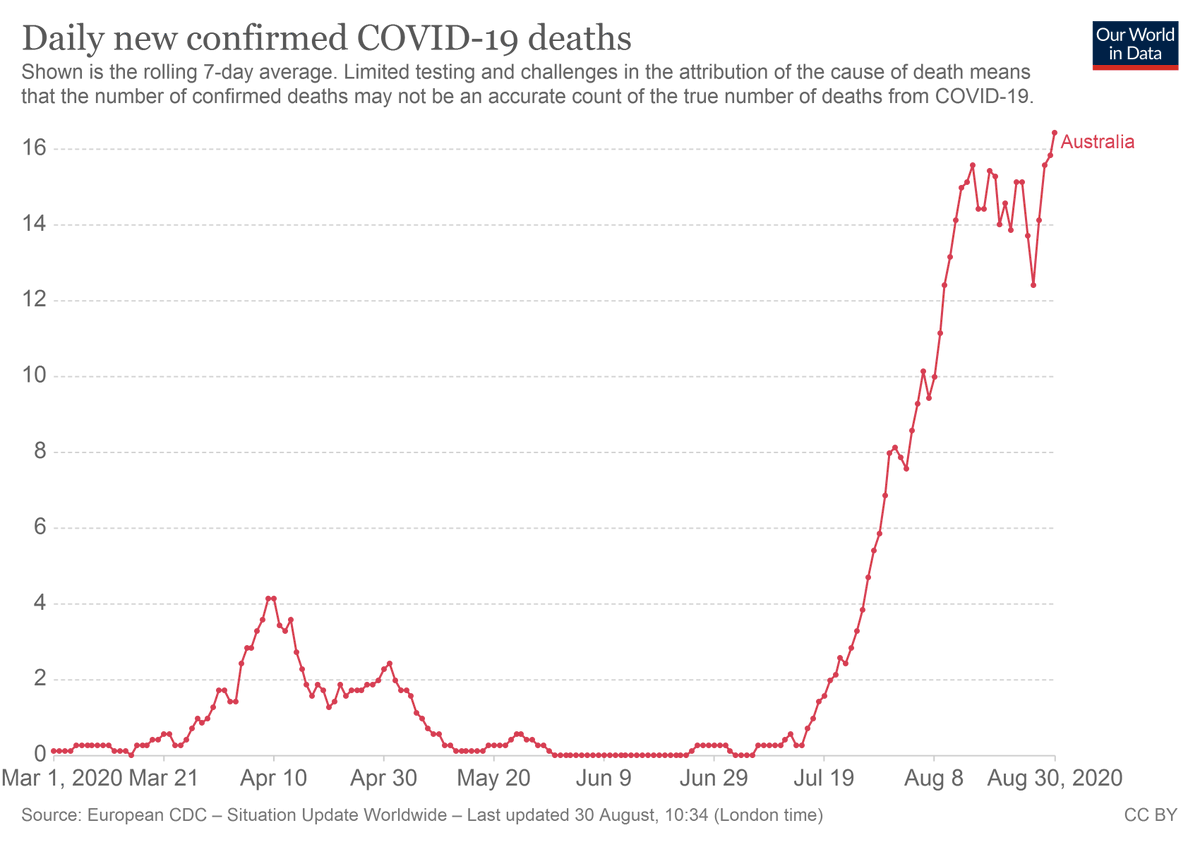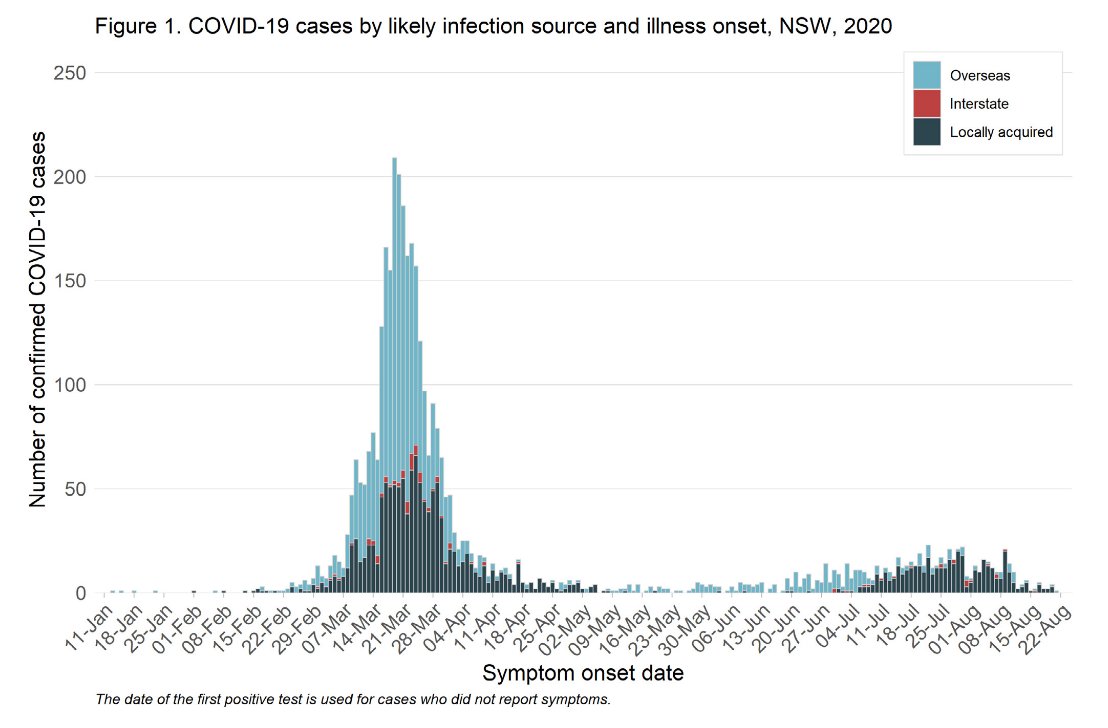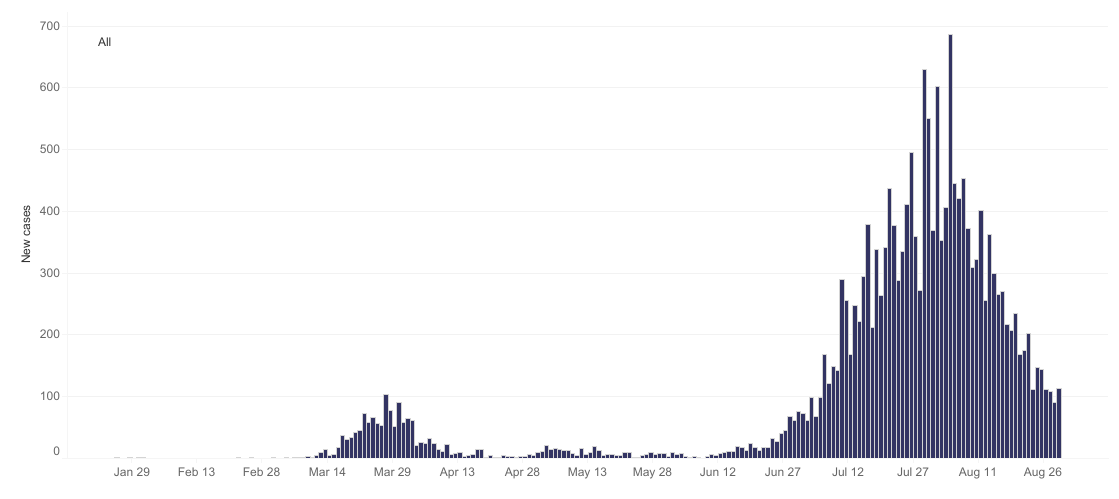(1/12) Is Australia& #39;s second wave worse because of winter?
No.
Cases have not increased because of winter, and mortality is not worse.
Here& #39;s a short thread for those overseas, to explain why you need to look a little closer at the data to understand what& #39;s going on.
No.
Cases have not increased because of winter, and mortality is not worse.
Here& #39;s a short thread for those overseas, to explain why you need to look a little closer at the data to understand what& #39;s going on.
(2/12) First, let& #39;s look at the data for Australia as a whole.
Confirmed cases are shown in the graph on the left, and deaths on the right. Images/data are from @OurWorldInData.
Mortality looks much worse in the second wave, but we need to look deeper.
Confirmed cases are shown in the graph on the left, and deaths on the right. Images/data are from @OurWorldInData.
Mortality looks much worse in the second wave, but we need to look deeper.
(3/12) First, much of Australia is actually pretty quiet. Almost all of the new cases and deaths are occurring in the state of Victoria.
Overall, there have been:
25,670 confirmed cases
611 deaths
But most of these occurred in Victoria:
19,015 cases (74%)
524 deaths (86%)
Overall, there have been:
25,670 confirmed cases
611 deaths
But most of these occurred in Victoria:
19,015 cases (74%)
524 deaths (86%)
(4/12) Australia recorded 125 new #COVID19 cases in the past 24 hours; 114 (91%) of these were in Victoria.
Our next most concerning state (New South Wales) accounted for 7.
Compare the epidemic curves for NSW (left) and Victoria (right). Only Victoria is having a second wave.
Our next most concerning state (New South Wales) accounted for 7.
Compare the epidemic curves for NSW (left) and Victoria (right). Only Victoria is having a second wave.
(5/12) People arriving in Australia from overseas are subject to quarantine. Specific hotels have been set aside for this purpose.
The outbreak in Victoria can be traced to a breach in this program, which is the subject of an inquiry. https://www.abc.net.au/news/2020-08-28/victorias-hotel-quarantine-inquiry-hears-guards-slept-on-the-job/12607036">https://www.abc.net.au/news/2020...
The outbreak in Victoria can be traced to a breach in this program, which is the subject of an inquiry. https://www.abc.net.au/news/2020-08-28/victorias-hotel-quarantine-inquiry-hears-guards-slept-on-the-job/12607036">https://www.abc.net.au/news/2020...
(6/12) Unfortunately, substantial community transmission occurred in Victoria before the breach was detected.
There has been widespread transmission of #COVID19 in aged care homes, which did not occur during the first wave.
There has been widespread transmission of #COVID19 in aged care homes, which did not occur during the first wave.
(7/12) Australia’s first wave was largely confined to overseas travellers and their close contacts. While some older people were affected (for example, cruise ship passengers), they were generally healthy and are not comparable to the older people in aged care being affected now.
(8/12) Hence, adjusting for the age of cases alone is insufficient; medical comorbidity must also be considered.
More people are dying in the second wave because many of them are considerably less healthy than those who were affected in the first wave.
More people are dying in the second wave because many of them are considerably less healthy than those who were affected in the first wave.
(9/12) However, there are reasons why winter could worsen the pandemic. These include changes in behaviour, such as people gathering together indoors more often.
(10/12) Changes in air temperature and humidity (both because of the weather and the use of heating) could also increase susceptibility to infection, and could affect some transmission routes (by making the virus easier to aerosolise, for example). https://www.kcl.ac.uk/news/covid-19-worse-in-colder-weather">https://www.kcl.ac.uk/news/covi...
(11/12) So, although winter could lead to environmental and behavioural conditions while facilitate the spread of the virus, it isn& #39;t responsible for what& #39;s happening in Australia at the moment.
If it did, the rest of Australia would be doing badly, not just Victoria.
If it did, the rest of Australia would be doing badly, not just Victoria.
(12/12) All the data for this thread can be found here:
Australia overall:
https://www.health.gov.au/resources/total-covid-19-cases-and-deaths-by-states-and-territories
New">https://www.health.gov.au/resources... South Wales:
https://www.health.nsw.gov.au/Infectious/covid-19/Documents/covid-19-surveillance-report-20200822.pdf
Victoria:
https://www.health.nsw.gov.au/Infectiou... href=" https://www.dhhs.vic.gov.au/victorian-coronavirus-covid-19-data
Snapshot">https://www.dhhs.vic.gov.au/victorian... for Australia (a couple of days out of date):
https://www.health.gov.au/resources/publications/coronavirus-covid-19-at-a-glance-27-august-2020">https://www.health.gov.au/resources...
Australia overall:
https://www.health.gov.au/resources/total-covid-19-cases-and-deaths-by-states-and-territories
New">https://www.health.gov.au/resources... South Wales:
https://www.health.nsw.gov.au/Infectious/covid-19/Documents/covid-19-surveillance-report-20200822.pdf
Victoria:
Snapshot">https://www.dhhs.vic.gov.au/victorian... for Australia (a couple of days out of date):
https://www.health.gov.au/resources/publications/coronavirus-covid-19-at-a-glance-27-august-2020">https://www.health.gov.au/resources...

 Read on Twitter
Read on Twitter